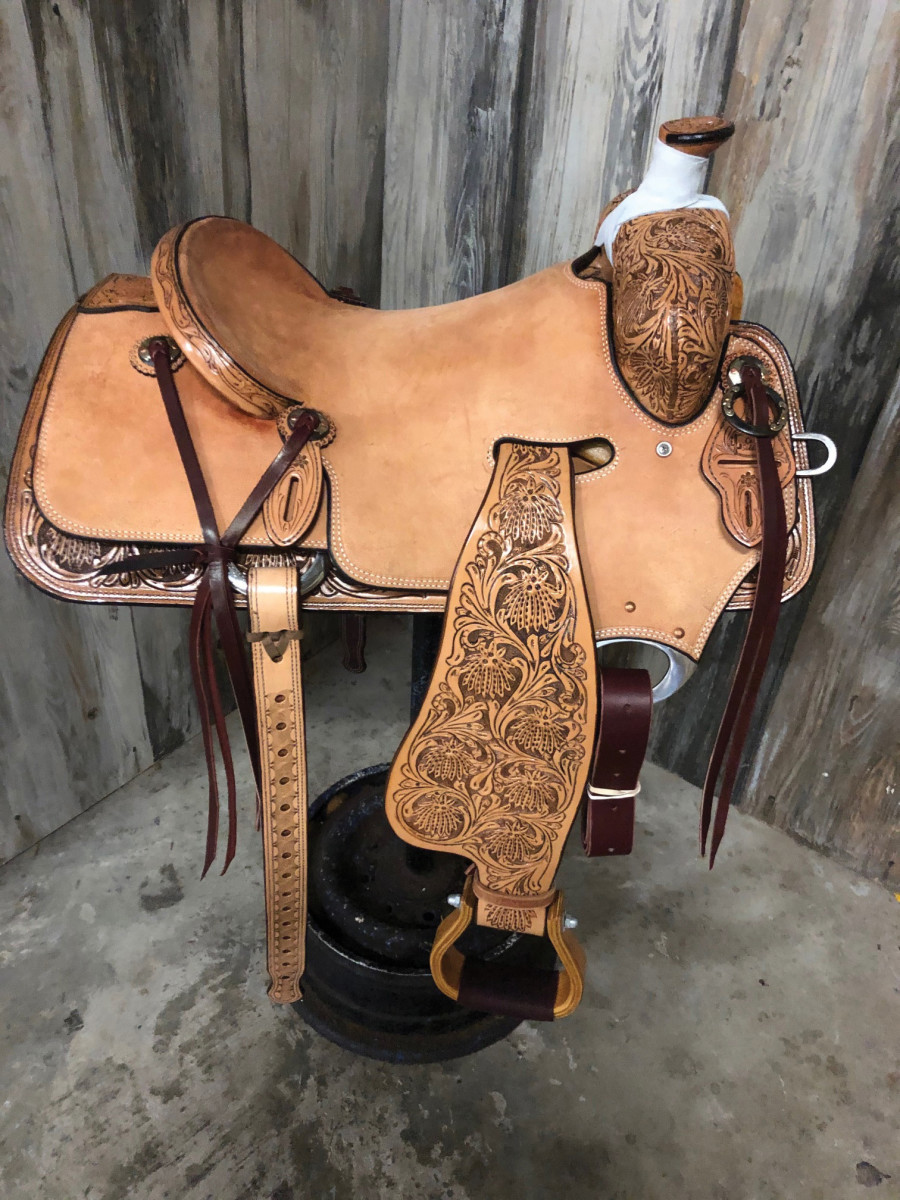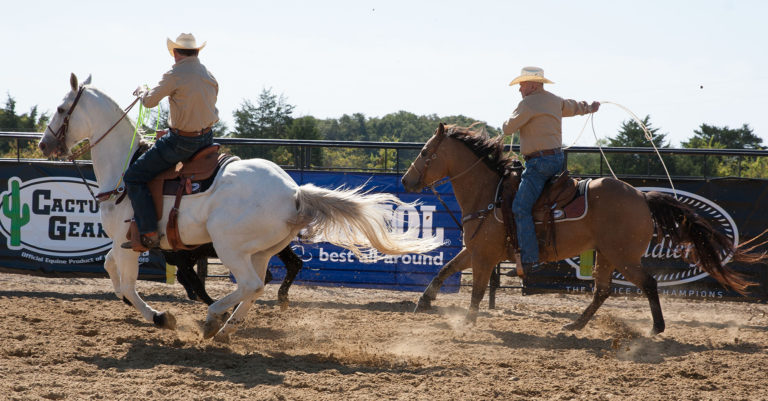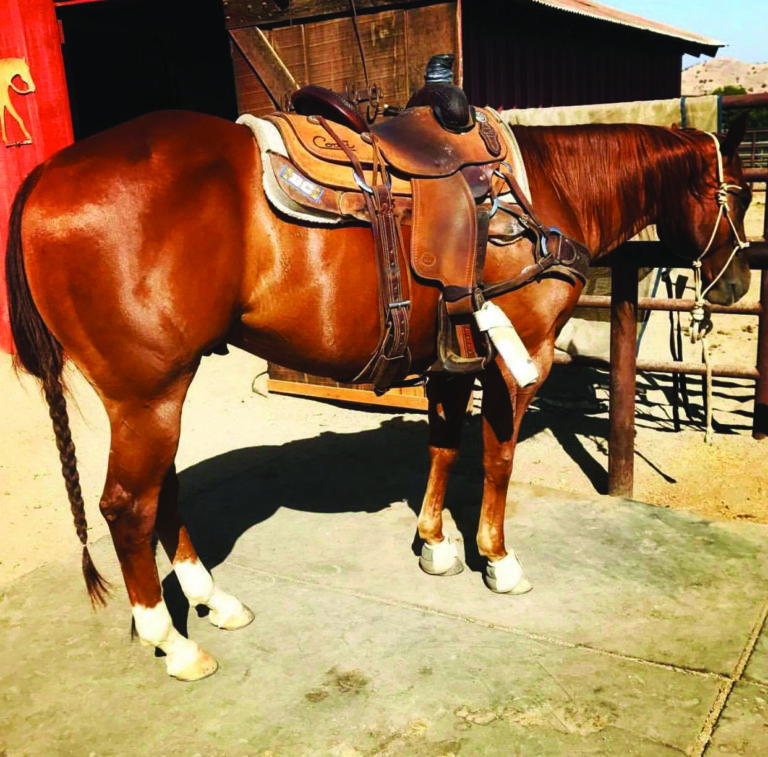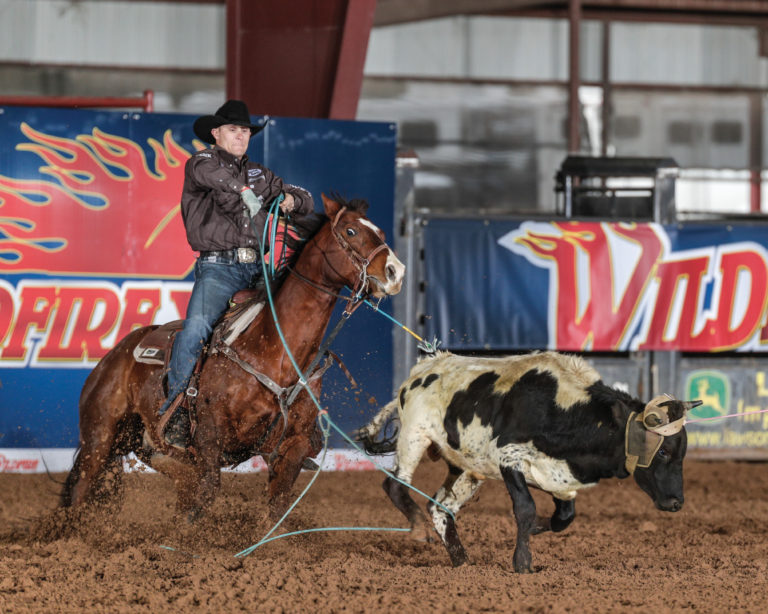At just 38 years old, it’s hard to call Josh Johnson, General Manager of Cactus Saddlery, a lifer but, so far, he kind of is.
“Like three months after I graduated [college,] I got a job working at Cactus in the shipping department,” Johnson said. “That was in 2008.”
In the 13 years since, he’s had a hand in nearly every aspect of the business.
“I went from shipping to sales to production manager and then, in 2016, I was kind of thrown into the general manager role and I’ve been there ever since. So basically, I’ve done every job there.”
As the GM, one aspect of the business Johnson takes upon himself is leaning into quality control.
“I’m heavy into quality and making sure everything is perfect,” he said. “Also, me and my head saddlemaker, Ray, we’re always trying to think of new ideas, even if it’s as small as a different type of stitch. But, every saddle that finishes I look at. It doesn’t go out the door until I inspect it and make sure it’s right.”

Courtesy Cactus Saddlery
The company does a lot with ranching saddles, for instance, and sought the help of Rodey Wilson to build out saddles with seat rigs. Seat rigs (which feature fenders that sit atop the skirt instead of beneath it) weren’t invented by Cactus, of course, but finding the resources to learn how to build them means they have more diverse offerings to meet the various needs of the horseback customers.
When it comes to operating a business, there isn’t one out there that hasn’t been impacted by these COVID-19 years. Between shutdowns, labor shortages and supply chain issues, businesses have been pressed to innovate and find solutions and Cactus is among those who have done so with success.
“We’re pretty fortunate,” Johnson admitted. “Ninety-nine percent of our raw material comes from the U.S., so we didn’t have to deal so much with the overseas stuff, but we still had—and still are—having some issues. Right now, in the saddle industry, it’s really tough to get saddle trees so, at the end of 2020, Joey Wenger (of JR Wenger Custom Saddles) basically taught us how to make our own trees.”
That shift in operations toward self-reliance has been a boon to Cactus and its customers.
“We started that in March of last year and, by the end of the year, we made 260 trees. That’s 260 saddles we wouldn’t have made or sold if we hadn’t started that, so that was tremendous. We’re learning every day, but the trees are lifetime warrantied just like they would be if you got them from any of the high-end makers, and it’s really saved us.”
Cactus continues to purchase trees, as well, but producing their own means they can better meet demand, which had them a year out on saddle orders.
“Business has been crazy. It’s unbelievable how many people are calling every day and they’re just knocking down our door trying to get a saddle. Before we were making our own trees, we were telling them it’s a year wait. Now, it’s three or four months at most.”
Johnson’s goal for 2022 includes bringing new saddle pads to market by the NFR. They’re testing their ideas on them now—a process that will really fit into the workflow when their brand-new roping arena—thanks to a partnership with Priefert—is completed at their office in Greenville, Texas.
“We should have that in by April or May, and we’re going to get to rope there every day. The plan is to hold a few events and hopefully get our endorsees down there and maybe have some schools. It will be exciting to have that to do what we need.”
Not a bad perk when you love to team rope as much as Johnson does.
“That’s been my passion and that’s why it was amazing to get involved with Cactus. I tell me wife all the time, ‘I have to go to this roping because I need to be there,’ and she goes, ‘Oh yeah. You have to go.’ But, I work with a super awesome group. Dustin Noblitt (ProEquine Group), Ricky Bolin (HatCo) and Barry Berg (Cactus Ropes), they’ve helped me and showed me the way and it’s just an amazing group to work for.” TRJ











